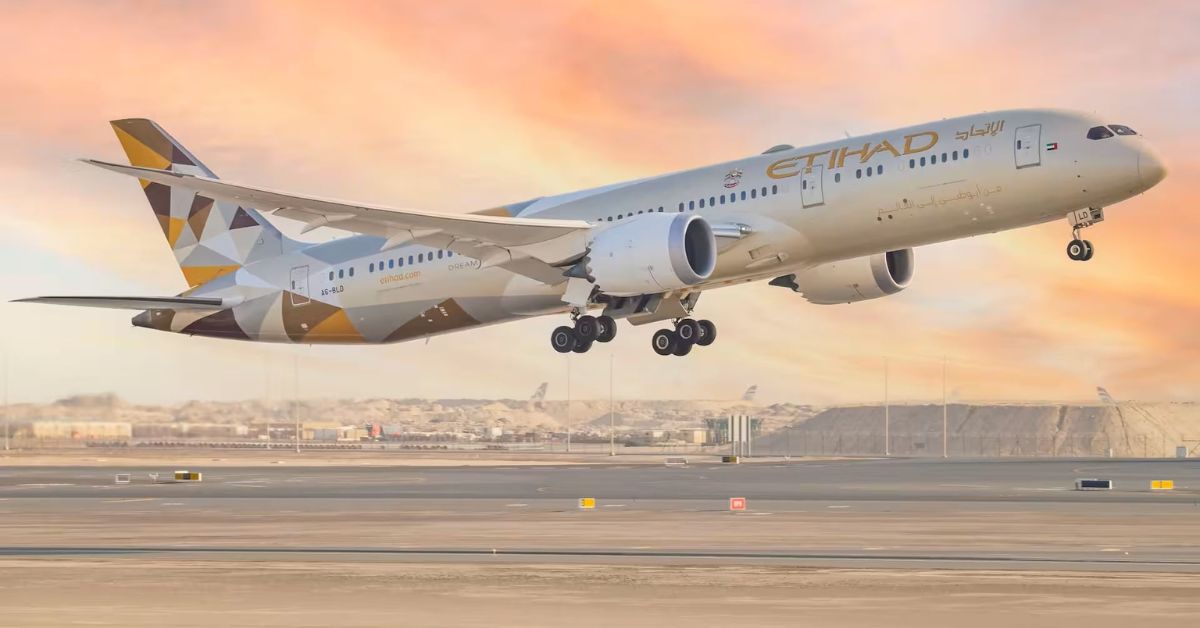ABU DHABI — Etihad Airways is set for expansion this year, broadening its network by adding more destinations, enhancing travel choices, and increasing flights to key international markets, said Antonoaldo Neves, Group Chief Executive Officer of Etihad Airways.
“Our goal is to usher in a new era of sustainable growth, anchored by a solid strategic plan,” he said, announcing that Etihad Airways will introduce new routes in 2024. These include Boston, marking the airline’s fourth destination in the United States, with four weekly flights beginning March 31. Nairobi, the capital of Kenya, will also join the network starting May 1.
In early January, the airline expanded in the Indian subcontinent, adding Kozhikode and Thiruvananthapuram in India’s Kerala region. This expansion brings Etihad Airways’ total destinations in India to 10. There are also planned increases in flight frequencies to several cities, including 21 weekly flights to Cairo, 7 to Colombo, 14 to Islamabad, and 14 to the Maldives.
Neves expects passenger numbers to rebound, reaching 2017 levels of around 18 million passengers by 2025. This is a recovery from the dip during the COVID-19 pandemic in 2019, when numbers had peaked at 17 million.

He noted that Etihad Airways is in a stronger financial position now than in 2017, having experienced a 30 percent growth in passenger numbers last year compared to 2022. The airline has set a long-term goal of serving 30 million passengers annually, which would triple the figure from 2022.
Neves highlighted that after 20 years since its inception, Etihad Airways has established a strong global presence and successfully navigated numerous challenges. Now, with robust stakeholder support and a strategic plan, the airline is poised for sustainable and profitable growth.
He emphasized that Etihad Airways’ “Etihad Airways 2030” strategy, supported by ADQ Holdings, represents a critical milestone in the airline’s evolution. This strategy is set to usher in an era marked by sustainable growth, improved customer experiences, and substantial economic contributions to Abu Dhabi.
As part of the 2030 plan, he outlined that Etihad’s network would expand to over 125 destinations. The airline will utilize its strategic location at the crossroads of Asia and Europe, focusing on connecting short and medium-haul routes in the GCC, India, and Asia with long-haul destinations in Europe and the East Coast of America.
Addressing inquiries about the current fleet size, the CEO stated, “In 2017, our fleet size peaked at 110 aircraft, and we focused on reducing it between 2019 and 2022. We’re now reintroducing large aircraft such as the Airbus A380, Boeing 787, and Boeing 777, which has brought our fleet up to 86 aircraft. By 2030, we anticipate growing our fleet to a total of 160 aircraft.”
Neves noted that Etihad’s fleet is diverse, comprising Boeing 787s, Airbus A380s, Boeing 777s, and Airbus A350s. The airline currently operates flights to over 70 destinations worldwide, having added 12 new routes last year. As part of the 2030 strategy, Etihad aims to extend its network to over 125 destinations, leveraging its unique geographical position that bridges Asia and Europe.
Neves further explained, “Beyond introducing new routes, we’re also increasing flight frequencies to our daily destinations across North America, Europe, Asia, the Gulf region, and the Indian subcontinent. This expansion is vital in offering more travel options, enhancing passenger comfort, and strengthening connections within our expanding global network.”
The CEO of Etihad Airways underscored that the new Terminal A at Abu Dhabi International Airport is a pivotal element in the airline’s growth strategy. This terminal can accommodate up to 45 million passengers annually and provides direct connections to 117 international destinations from Abu Dhabi. He emphasized that the terminal features dedicated check-in facilities for Etihad’s Economy Class passengers and exclusive areas for Business and First-Class travelers, offering a premium experience.
He also highlighted Etihad Airways’ crucial role in expanding the destination network and supporting Abu Dhabi’s economic growth objectives. The increase in connectivity options will further enhance Abu Dhabi’s position as a key business and tourism hub. Additionally, it reinforces the city’s status as a gateway to the other Emirates within the UAE and to the broader GCC region on an international scale.

